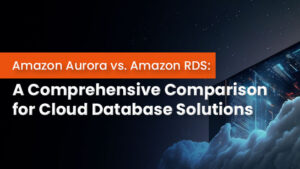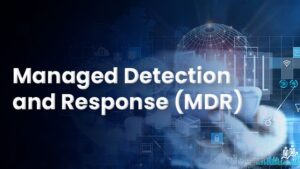Introduction

A data management approach or deployment model known as “Data as a Service” (DaaS) focuses on the cloud (public or private) to offer various data-related services like storage, processing, and analytics.
DaaS takes advantage of the well-known Software-as-a-Service (SaaS) model, which enables users to use cloud-based software programs provided over a network instead of establishing dedicated hardware servers for particular functions on a particular data set. DaaS aims to increase cooperation and knowledge transfer within any business by allowing teams to share some of the data among themselves. This is done in addition to sharing a common infrastructure to generate economies of scale. Customers who use DaaS hope to lessen data silos and sprawl by handling most of their cloud storage, processing, and analytics requirements. This article covers a detailed knowledge of DaaS.
If you are interested in beginning your career in Data as a Service (DaaS) or a related field, IPSpecialist is considered the best place to start your journey. We offer online courses, study guides, e-books, practice questions, exam-cram notes, and career guidance. Check out our Courses now!
DaaS Services
- A business that uses M2M interfaces to give another business the needed data is a DaaS provider.
- A vendor enables another business to offer its data as a service by acting as a technology supplier for the DaaS provider. Both internal and external use of DaaS is possible.
In both of its guises, DaaS is a method for managing data in the cloud that provides access to data from many sources to power new software and electronic devices. Installing and maintaining software on-premises is no longer necessary due to DaaS. It allows businesses to outsource cloud analytics, processing, data integration, and storage services.
Why is it Important?
Considering that DaaS has the potential to become the hub of analytics and big data, it is anticipated to have a more significant influence than most other data-related developments.
The significance of data as a service is driven by the rising importance of data and analytics. Companies can access external data with ease due to external DaaS services. Internal DaaS offerings help businesses democratize analytics and give their business users more control.
Working of DaaS
Data-as-a-Service platforms are technologies that are employed internally by businesses. They are an end-to-end solution and may be seen as a facilitator between different data sources and tools like self-service reporting, business intelligence, microservices, and applications.
Businesses can also access data using external DaaS services. DaaS services are provided by numerous companies using simple APIs.

Benefits of DaaS
DaaS accelerates access to the required data by making it adaptable but easy to access. Users can take action immediately without fully comprehending where the data is stored or how it is indexed. The most significant advantage of DaaS is agility, which enables service customers to reduce time to market.
-
Financial Flexibility
- DaaS enables businesses to compromise between capital expenditures and operating costs. DaaS enables businesses to create services without spending money on the employees and infrastructure needed to handle their data.
- DaaS decreases the capacity of source systems, lowering licensing, MIPS, and hardware expenses.
- DaaS aids businesses in reducing maintenance expenses. Since DaaS vendors update their products for end users, DaaS customers are relieved of the requirement to perform ongoing testing and maintenance.
The cloud offers greater flexibility and scalability than alternatives for on-premise data management.
Data service users have access to data. Data tracking is made simpler because the data service is the only point of update which can enhance data quality.
What are its Challenges?
As data breaches increase, cybersecurity precautions must be taken carefully. Your firm could lose millions of dollars and damage its reputation if the security measures provided by the DaaS vendor are insufficient to thwart potential data breaches. It is vital to comprehend the companies’ approach to data security before choosing a DaaS provider.
When a company works with a DaaS vendor, they may mix their internal data with the provider’s data set, but the rules used by the vendor and the business to prepare the data may not be compatible, which results in filthy data. Organizations should ensure the vendor can precisely sync with other data sets.
Information that is exchanged may contain sensitive or private data. Organizations must verify that DaaS providers offer the required safeguards to protect personal data privacy.
What is DaaS Used For?
Various strategies are used by businesses to employ DaaS to promote go-to-market success:
-
Using DaaS to find reliable information about small businesses
Accurate location data is crucial for companies that depend on physical address information, such as shipping or freight carriers, but it can be challenging to obtain on a large scale, especially for smaller companies. With DaaS, teams can accurately cover even the most challenging addresses, such as warehouses, small business storefronts, branch offices, and satellite buildings, by combining their internal customer information with third-party data.
-
Using DaaS to assess small, private enterprises’ financial standing
Many teams utilize industry categorization codes to evaluate the level of risk involved before giving credit to a new customer. However, industry codes can only provide a limited amount of information about a company, especially if they are overly generic and loosely categorized.
Advanced DaaS qualities, such as a thorough understanding of the market a firm services or the sophistication of their technology stack, can transform unstructured business data into structured, proper signals and intelligence.
-
Using DaaS to understand granular details about your target accounts
Every revenue team needs to learn more about its target market to segment and prioritize accounts. Target account lists are frequently segmented by industry, although some industries, like “technology” or “manufacturing,” may fall under an extensive default classification.
Companies can choose a few ideal accounts using DaaS, then map their pertinent terms or keywords onto a company semantics graph. This identifies associated businesses that may be well suited for what is being supplied in new or adjacent industry categories.
Data as a Service (DaaS) Companies
Data warehousing, data lakes, data sharing, and data exchange are all capabilities offered by Snowflake, a provider of Data as a Service. This platform enables your organization to store and examine structured, semi-structured data for commercial insights.
High-performance in-memory databases like SAP Hana offer multimodel data sophisticated analytics both on-premises and in the cloud. With the help of this platform, you can create data solutions using cutting-edge architectures and instantly obtain business-ready insights.
Using Datalogix and BlueKai, which Oracle acquired, Oracle DaaS is a marketing intelligence platform with a subscription-based business model. Oracle DaaS for Social offers social and enterprise data, while Oracle DaaS for Marketing offers marketers anonymous multi-channel data.
The importance of managing, storing, and analyzing data will rise as technology develops. Although it might seem complex, DaaS providers can assist in streamlining and making sense of this procedure.
Future of DaaS
Information management experts predict that the DaaS industry will grow as more businesses learn which data assets they may rent to gain a competitive advantage. DaaS is expected to propel the big data analytics and business intelligence markets.
Conclusion
DaaS is a strategy to simplify the world of storing and processing large amounts of data. Such storage can come from the cloud, which an organization can then access via a network and usually an Internet connection.









